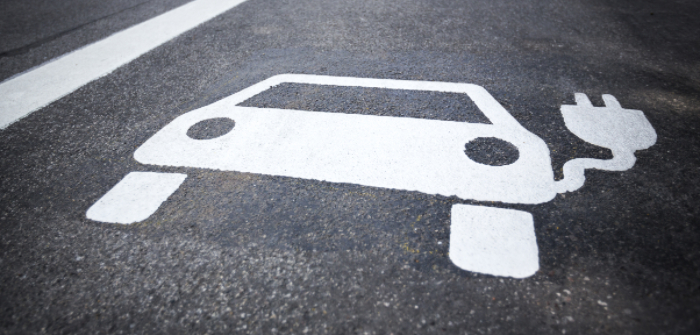Colin Andrews, automotive engineering consultant for CSA Performance, ponders the future of the automotive industry and whether electrification is really the way forward.
Instant torque right from the start, and so clean and simple – what’s not to like? Well, perhaps we should start asking the right questions, and obtaining answers.
A lot has been said about the use of renewables and cheap-rate, off-peak charging. The reason off-peak exists is because it’s off-peak! If the nation’s entire fleet of cars, vans, buses and trucks plugged-in overnight, then it wouldn’t be off-peak, hence unlikely to be cheap-rate.
The UK government is keen to emphasize our renewables capability, tending to use figures stating rated output. Is this from the generators, or when it hits the grid? Since the UK decided to major on the two least reliable renewables – solar and wind – then we’re unlikely to ever see rated output, particularly matched to demand. The real figures will be substantially lower. Consequently, we still need baseload back-up; either using nuclear, along with its toxic legacy, or fossil fuels, along with the CO2.
Modern wind turbines are almost the height of the Eiffel Tower, and hence are going to significantly affect the visual environment; thus, placing them offshore is preferable. Since they have to be dispersed to be effective, this will result in a lot of saltwater immersed electric cables. What are the efficiency losses getting this ashore, let alone to EVs?
Manufacturing, installing and maintaining offshore windfarms creates a lot of CO2, which being additional to the existing baseload power stations, may well result in more CO2 being created than they save over their lifetime. Early offshore windfarms are already indicating lifespans significantly less than anticipated.
Solar panels use toxic materials. Is the manufacturing process being properly scrutinized? What assurances can the manufacturers give that environmentally damaging emissions are contained? How durable are they in service to ensure no toxic leakage into the ground beneath them? Once they have expired, are the remains going to be recycled? While mandating responsible environmental standards would be prohibitively expensive.
Electrification, from generation to vehicle, is reliant on subsidy. As usual with subsidies, they are a double-edged weapon; what looks good on one side is invariably offset by the other. It’s very easy to only look at one side.
Electric vehicles predate internal combustion, so what has changed to transform old milk floats into the modern wonders we see today? Rare-earth materials. It is worthwhile noting the name, because they’re hardly abundant. In fact, they actually occur in many locations around the world, albeit in small, uneconomic quantities, generally requiring the removal of vast quantities of other material first. Performing this in an environmentally sympathetic manner isn’t cheap, hence obtaining these from countries with lax standards is more cost-effective.
Cobalt is one of the essential ingredients, with the world’s largest known reserves being in the Congo. Accordingly, we are strip-mining vast expanses of tropical landscape to supply our electronic needs, obtaining nearly 70% from here. However, each electric car uses over 1,000 times the amount of a typical laptop, therefore this will increase enormously. Around 95% of the world’s supply of rare-earths are processed in China, with the vast majority in Inner Mongolia, where environmental standards are non-existent.
Mass production won’t bring prices down; it would only result in increasing devastation of the third world. Meanwhile, bringing environmental and human rights up to western standards would significantly increase the already rapidly rising costs. Vehicle fleet electrification cannot be ethically sourced at affordable prices. Difficult questions need to be answered.
Most people would agree that the air quality in our cities is appalling, but rather than gesticulating animatedly in the general direction of vehicles, let’s be more scientific; and specific.
The panic to lower CO2 20 years ago created the diesel rush, given the new technologies entering the market. The high NOX emissions were a consequence of EU regulations setting diesel limits three times higher than gasoline, however the certified figures were typically around ten times higher, although diesel modus operandi meant this was much worse in real-world driving. Apart from the respiratory issues resulting from this, NOX is around 300 times more potent a global warming gas than CO2, but that was ignored.
Meanwhile, gasoline cars were being vilified. In 1988, I engineered a US-bound gasoline vehicle that could deliver negative emissions in the lab, therefore would easily clean the dirty air in our cities. It would have been both easier and quicker to reduce the CO2 from gasoline cars than clean up diesels. We could have had clean air long ago.
The industry has worked wonders in making cars cleaner, recyclable, lighter and more durable, so why does that all go out of the window with electric cars? What state will they be in after 10 years/100,000 miles? Recycling the electric parts is expensive and power-hungry; dumping them is environmentally reprehensible. The difficult questions should have been answered before wasting billions of pounds of taxpayers’ money chasing rainbows.
The industry should stand proud of its achievements, rather than allowing itself to be bounced into doing the wrong thing. The consequences will be more dire than Dieselgate. We don’t need electric cars. We’ve had the answer for decades.


